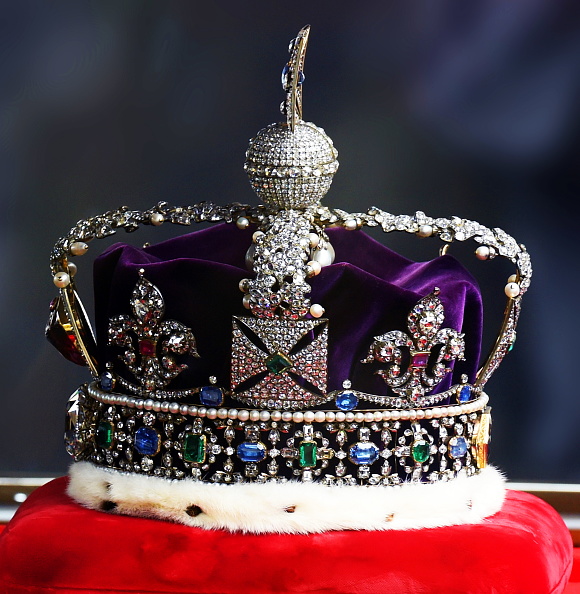SOUTH AFRICANS have asked for the “world’s largest diamond” in King Charles’ crown jewels to be returned to them ahead of the Coronation this weekend (6th May).
The precious diamond, known as the Star of Africa which weighs 530 carats, was unearthed in South Africa in 1905. Two years later, it was given to the British Monarchy when the country was under British colonial rule.
The diamond, which is present in the royal sceptre, is expected to be on full display when King Charles III is crowned during his historic coronation.
However, the British monarchy has come under fire from activists and campaigners who are pushing for reparatory justice after Britain’s colonial stain on their countries.
Mothusi Kamanga, a lawyer and activist in Johannesburg, told Reuters that the diamond needs to be returned to South Africa.
“It needs to be a sign of our pride, our heritage and our cultures. I think generally the African people are starting to realise that to decolonise is not just to let people have certain freedoms, but it’s also to take back what has been expropriated from us,” he said.
Mr Kamanga has led an online petition for the diamond to be given back which has so far amassed around 8,000 signatures.
The jewel is formally known as Cullinan I after being cut from the Cullinan diamond, a 3,100-carat stone which was mined near Pretoria.
A Cullinan II is a smaller diamond in the Imperial State Crown and was taken from the same stone. For South Africans, a mere replica of the Cullian diamond is on display at the Cape Town Diamond Museum.
Speaking to Reuters, Mohamed Abdullahi, a resident in Johannesburg, said: “I believe it should be brought back home because, at the end of the day, they took it from us while they were oppressing us.”
Dieketseng Nzhadzhaba, another local resident, told Reuters: “I don’t think it matters any more. Things have changed, we’re evolving.
“What mattered for them in the olden days about being superior … it doesn’t matter to us any more.”
The calls from some South Africans come amid a global reckoning of reparative justice from institutions and royals who continue to benefit from colonial era rule.
A number of Caribbean countries, many of which still use British colonial era laws, have been vocal in demanding reparations from the British government and Royal family who they say have benefited from slavery.


Comments Form
2 Comments
South African leaders need urgently to address; correct and end, South Africa’s rape culture; that has placed all female infants; junior-school-aged pupils, female youth, women and senior-aged women, in serious risk of being abused; rather than worrying about a gemstone in the Royal Sceptre.
In 1906, we African-heritage people did not value diamonds.
Diamonds in South Africa were common, and they were not given any specific value by African-heritage native people-whose children played with the gemstones.
It was the Caucasians who turn the diamond into a highly valued and precious gemstone; valued and sought after from the people of the western Caucasian nations.
The institutions of England should not return any African artefact to Africa, until Africans can demonstrate an ability to properly value Africa’s looted and stolen cultural artefacts.
The diamond was sold by the mining company and the South African government receive 60% of the proceeds. The purchasers of the diamond then gave it it Edward VII. Consequently the South African Government have no legitimate claim on that diamond any more than if it had been sold to an American.